From the 11th to the 13th of May 2022, the nature schools of Zurich, Wildnispark Zurich, Sihlwald and the SILVIVA Foundation welcomed around 120 forest educators to the 16th European Forest Pedagogics Congress (the annual congress of the FCN-Subgroup).
Under the motto «How to learn in and with nature in times of climate crisis? European perspectives and solutions», more than 20 workshops were offered by partners and participants.
We visited Sihlwald, the Hönggerberg Nature School and the Forest Laboratory in Zurich, and discussed what we had experienced and learned and how to proceed further at the Gottlieb Duttweiler Institute in Rüschlikon.
During the 16th European Forest Pedagogics Congress the contribution of forest pedagogy and learning in nature to deal with the climate crisis was discussed. We saw practical examples, exchanged experiences and laid the foundations for further effective actions at home and abroad.
Almost 120 participants of the European Forest Pedagogics network from all over Europe (including about 55 from Switzerland) spent almost a year preparing for the congress, developing new forest education projects or improving existing ones. At the congress, they exchanged their best practices for effective climate education on the ground, learned from each other and supported each other in improving.
Due to the planning and form of the congress, the participants were sent on a learning journey to learn as much as possible from each other before, during and after the congress in terms of content, methodology and organisation.
In our opinion, the project has shown how forest pedagogics and environmental education can contribute to tackling the climate crisis as effectively as possible.
The congress has certainly supported the intended goals of (forest) education providers doing effective climate education and (European) congresses being more climate neutral in the future.
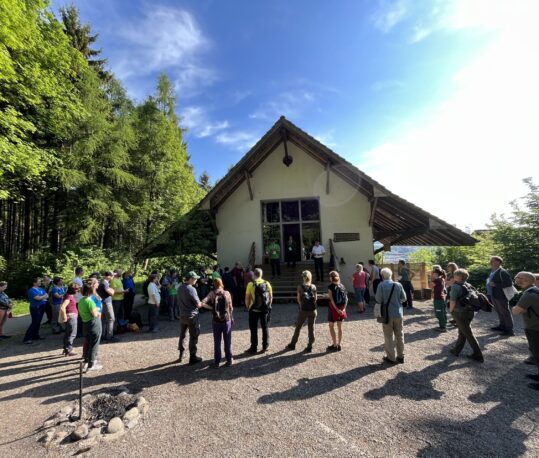
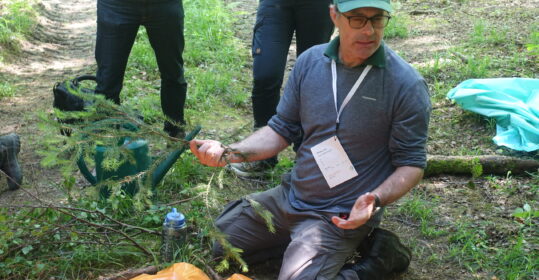
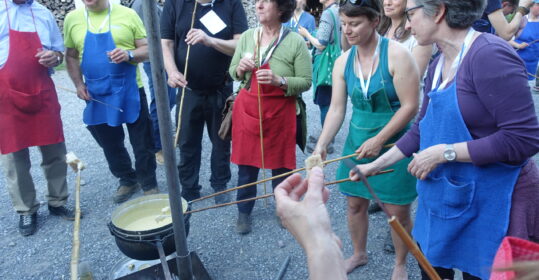
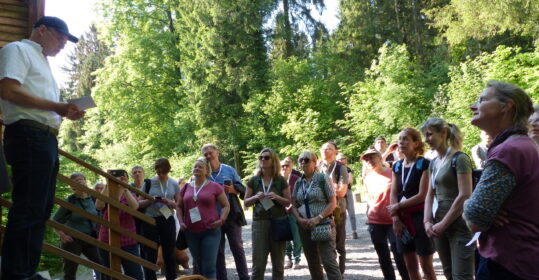

Initial situation
It is clear that education must contribute to combating climate change and that environmental education is predestined for this role. This is especially true for forest pedagogy and nature-based environmental education. But how can we do this and how can it be effective?
-
What does contemporary forest pedagogy look like in times of climate change? What projects, programmes and approaches are there?
-
How can/should forest pedagogy inputs/interventions be designed so that they make a contribution against climate change? And how can they be further developed?
-
How can insights from climate education enrich the methodology of forest pedagogy?
We raised and discussed these and similar questions at the European Forest Pedagogics Congress 2022.
Goals
At the end of this learning journey, participants should be able to contribute effectively to addressing the climate crisis through educational events.
-
Gathering, sharing and disseminating existing concepts and developing new, innovative educational opportunities to support tackling the climate crisis effectively.
-
A European congress, which is itself climate neutral or climate positive. The educational activities should help to reduce CO2 directly as well as show solutions.
-
Transfer before and after the congress is of key importance: the aim is for the participants to implement climate-effective solutions in their everyday work.
-
Participants raise their awareness of the possibilities of education in the context of climate change.

Innovative and sustainable
At the previous European Forest Education Congress 2021 online «in Luxembourg», participants were given some homework: They were asked to carry out preparatory activities in their countries and to develop or improve existing educational activities on forest education and climate.
These good practices and experiences were then shared during the congress.
At the end, the participants were able to return to their home countries with the feedback from the other participants, the ideas and insights from the congress and with the next steps for further development as defined as possible.
Travel
For our guests from abroad, we could provide funds to partially reimburse travel and accommodation costs. We tied this to the condition of travelling by environmentally friendly means of transport (no cars unless they are full, and no flights). This resulted in the vast majority of participants travelling by public transport.
Tickets for public transport during the congress
In cooperation with the ZVV (Zurich Transport Network) we were able to provide personal tickets for the whole duration of the congress. It was valid for four days (Tuesday to Friday), Zurich city zone and for the two trips to Sihlwald and Rüschlikon on Tuesday and Thursday.
Accommodation
All proposed hotels have the «Green Leaf» label. In order to reduce the CO2 footprint a bit more (and to promote exchange and socialising), we also try to provide private accommodation. Unfortunately, we were only able to offer very few private accommodations, we assume that this was due to the fact that participants from Switzerland mostly do not live in Zurich.
Participants
For space and ecological reasons, we have limited the number of participants to 50 participants from Switzerland and 100 participants from other countries.
Over the three days, almost 120 people from 16 countries took part (not quite half of them (45%) from Switzerland).
Audio summary of the 16th European Forest Pedagogics Congress
Results
Learning outcomes of the participants
The results of the workshops were recorded and made available to all participants online. The same applies to the results of the final workshop on the third day. In addition, the transfer method Troika Consulting was used, so that all participants could take away not only the learnings for their organisations but also considered, discussed and concrete next steps.
At the end of the congress, all participants were asked on site and by email to give open feedback to the organisers (by email), to themselves (online tool / email) and to the whole group («online mandala»), preferably on the way home.
In addition, digital surveys (online forms) about the congress and the individual workshops were conducted after the congress. The surveys are still running.
For the longer-term effects, a survey of the participants is planned before the next congress (September 2023 in Bonn).
The view from the organising team
The cooperation between the SILVIVA Foundation, the Naturschulen Zurich and the Wilderness Park Sihlwald was strengthened on a personal, organisational and content-related level. We have all learned from each other. In addition to the «learning by doing» in organising the congress (especially organisational know-how), all three institutions have independently rethought and improved their environmental education practice in relation to climate protection.
A very concrete project is also being planned: we want to jointly supplement the «nature-based environmental education planning guide» of the Nature Schools Zurich (formerly the «ESD Toolbox») with aspects of climate change and have it translated into English and made available online…

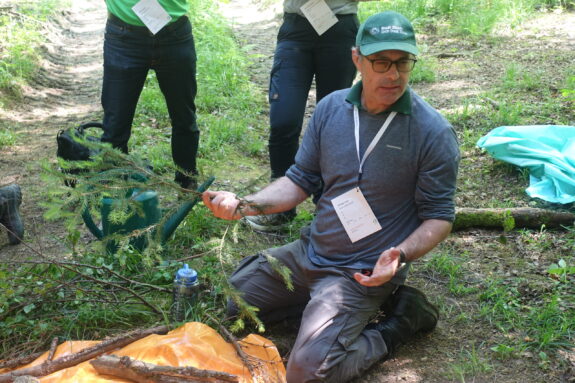


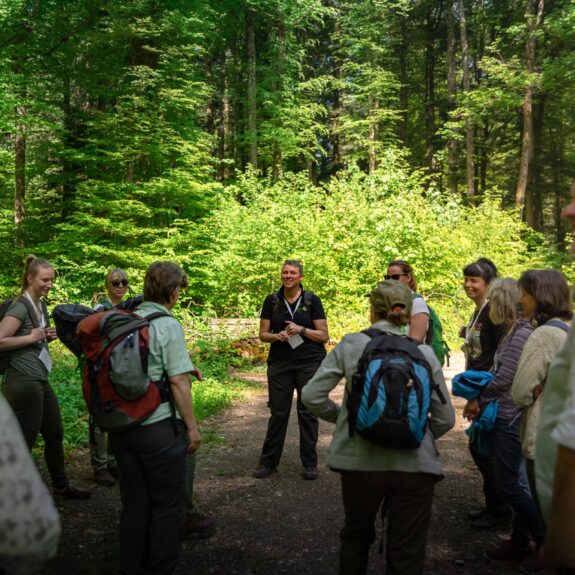



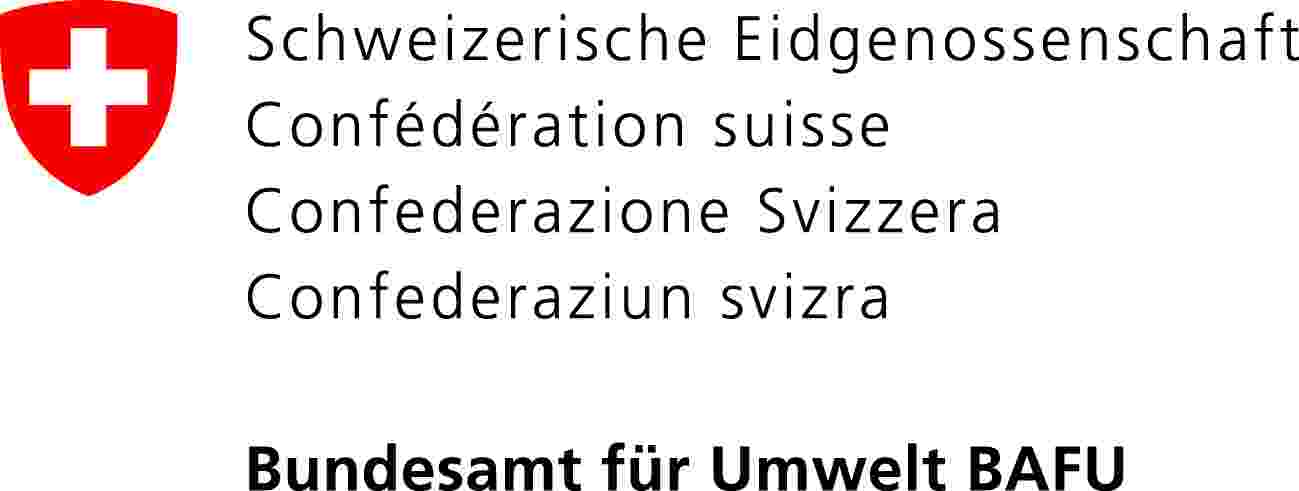


S'exprimer.
Partager.
Discuter.